 It’s been a long time coming.
It’s been a long time coming.
In August 2022, I was able to pull myself out of a book slump by way of some inspiration from a BookTuber who had been documenting her reading journey. I visited a bookstore and came home with a haul, then went again, and again, and again….
Additionally, Turtle, who is often around books and film, has on several occasions created special bundles for past Mother’s Day, birthday, and Christmas book gifting. He chose a few singleton volumes, but then also curated a set of six, each chosen from specific genres: historical fiction, sci-fi, fantasy, literary fiction, romance, and non-fiction. On top of that he periodically came home with a title he saw and thought, “She’d love this.” Often it is an Alexander McCall Smith book (he grew up hearing me talking endlessly about them), maybe a coloring book with a theme he knows I enjoy. Once it was a new title about Francis Marion, the Swamp Fox of the Revolution. He still has a memory like a steel trap and remembers well my childhood story of his grandfather coming home from a walk, during which he passed a church book sale and picked out a book for me about that same historical figure.
So, in these past nineteen months I have acquired a fair number of books, but never got around to part two of this blog. Luckily, I’m here to remedy this today.
In between parts one and two there have been other books, and you can see some in the slide show at the top of the sidebar. They are not all there yet, so do check back every so often to see them plus others I acquire after today. Note: I do thrift a lot, so if this blog puts a bug in you, remember that you don’t have to go wild with spending money to have a nice little collection. Many, many of my books cost 10¢ – no joke! Also, even buying new at a bookstore, many of the titles I have picked up are sold at “buy one get one 50% off” (BOGO) and the store I go to price matches to their website (just let them know, it’s a simple button they press), so you stand to get some really good deals.
 In college I fell in love with The Odyssey – not in an I must pursue this for the rest of my life type love, but rather one that recognized a previous gap in my reading experiences. So, I was pretty stoked to find Claire North’s Ithaca, the story of Penelope with the how and why behind the pressures mounting on her in the continued absence of Odysseus, and her role in a civil war that may yet be, depending upon the choices she makes. But no pressure, right?
In college I fell in love with The Odyssey – not in an I must pursue this for the rest of my life type love, but rather one that recognized a previous gap in my reading experiences. So, I was pretty stoked to find Claire North’s Ithaca, the story of Penelope with the how and why behind the pressures mounting on her in the continued absence of Odysseus, and her role in a civil war that may yet be, depending upon the choices she makes. But no pressure, right?
And then comes book two in the Songs of Penelope series: House of Odysseus, more about Penelope’s balance of power, now in her existence between two mad kings and amongst other strong women with their own plans and perspectives.
 Considering that in college linguistics was – and even then I knew this – only a casual interest, as fascinating as I knew I would always find it, I was a little surprised to find the author name on the book I happened upon was one I recognized as belonging to an academic whose words I’d previously studied. Deborah Tannen was not an author I expected to see amongst the browsing of books one generally reads for pleasure, but there it was: Finding My Father: His Century-Long Journey from World War I Warsaw and My Quest to Follow, and for a mere dollar. I’d not seen it when it was published in 2020, and somehow, I was a bit saddened that it was on what we call the “dollar rack.” But I also have snapped up great finds in the bargain section (Grey is the Colour of Hope is one that stands out), fiction and non-fiction. The Great War era also is currently one I would like to know more about, so it had to be mine.
Considering that in college linguistics was – and even then I knew this – only a casual interest, as fascinating as I knew I would always find it, I was a little surprised to find the author name on the book I happened upon was one I recognized as belonging to an academic whose words I’d previously studied. Deborah Tannen was not an author I expected to see amongst the browsing of books one generally reads for pleasure, but there it was: Finding My Father: His Century-Long Journey from World War I Warsaw and My Quest to Follow, and for a mere dollar. I’d not seen it when it was published in 2020, and somehow, I was a bit saddened that it was on what we call the “dollar rack.” But I also have snapped up great finds in the bargain section (Grey is the Colour of Hope is one that stands out), fiction and non-fiction. The Great War era also is currently one I would like to know more about, so it had to be mine.
Note: Link shows book price as $18, so you may wish to check your local store before purchasing online.
 In a garden surrounded by a tall fence, tucked away behind a small house in the smallest of towns, is an apple tree rumored to bear a very special sort of fruit. I read about another enchanted tree once, one that gave way to a massive peach, which I know in my telling sounds like the blurb for one of the thousands of fantasy tales that doesn’t stand out. I assure you, however, James and the Giant Peach touched millions of lives. Our beloved third grade teacher read it to us, and I still love it. Plus there is another connection that piqued my curiosity, mythical plants, the casting of spells…Garden Spells pretty much wrapped its tendrils around me.
In a garden surrounded by a tall fence, tucked away behind a small house in the smallest of towns, is an apple tree rumored to bear a very special sort of fruit. I read about another enchanted tree once, one that gave way to a massive peach, which I know in my telling sounds like the blurb for one of the thousands of fantasy tales that doesn’t stand out. I assure you, however, James and the Giant Peach touched millions of lives. Our beloved third grade teacher read it to us, and I still love it. Plus there is another connection that piqued my curiosity, mythical plants, the casting of spells…Garden Spells pretty much wrapped its tendrils around me.
 Wild and Wicked Things comes straight off the poster of “judging a book by its cover,” as just the sight of the design made me want the volume, not to mention its nice, stocky appearance and deckled edges. Lucky for me it’s set in the 1920s, a decade that falls within the era before and after the Great War that has lately captured my interest. There is a Beatrice, and witchcraft in this era is a theme I’d never really considered – I more often consider it of the Middle Ages, or seventeenth-century Salem. But Emmaline Delacroix – a name that seems to contradict accusations of witchcraft – does seem to belong here, in this time of excess and dripping decadence. I have an idea where at least some of this may be going, so we’ll have to march on and see if it plays out.
Wild and Wicked Things comes straight off the poster of “judging a book by its cover,” as just the sight of the design made me want the volume, not to mention its nice, stocky appearance and deckled edges. Lucky for me it’s set in the 1920s, a decade that falls within the era before and after the Great War that has lately captured my interest. There is a Beatrice, and witchcraft in this era is a theme I’d never really considered – I more often consider it of the Middle Ages, or seventeenth-century Salem. But Emmaline Delacroix – a name that seems to contradict accusations of witchcraft – does seem to belong here, in this time of excess and dripping decadence. I have an idea where at least some of this may be going, so we’ll have to march on and see if it plays out.
 I often play word games on my phone, usually two that involve letters to create words. (I used to turn the phone upside down to look at the letters from a different perspective before I realized a click arranges them for you in a different order.) Brain Games Bible Word Search: Psalms is a bit different in that here are whole words you are searching for, but I thought it a nice twist that adds a bit of variety to how I exercise my brain. There were several Bible-themed titles, as I recall, and I chose this one because I’d like to become more familiar with the psalms; this not only does that but also places biblical poetry within the course of my day, rather than a small, sectioned-out portion that is set aside when it is complete. So far, I’ve done one puzzle and just as I was thinking, “Is this really too easy for me?” I stumbled upon the reality that I simply could not find the final word.
I often play word games on my phone, usually two that involve letters to create words. (I used to turn the phone upside down to look at the letters from a different perspective before I realized a click arranges them for you in a different order.) Brain Games Bible Word Search: Psalms is a bit different in that here are whole words you are searching for, but I thought it a nice twist that adds a bit of variety to how I exercise my brain. There were several Bible-themed titles, as I recall, and I chose this one because I’d like to become more familiar with the psalms; this not only does that but also places biblical poetry within the course of my day, rather than a small, sectioned-out portion that is set aside when it is complete. So far, I’ve done one puzzle and just as I was thinking, “Is this really too easy for me?” I stumbled upon the reality that I simply could not find the final word.
 A big part of the appeal of The Lost Bookshop was it being set in Ireland. The blurb, which spoke of three strangers, a vanishing bookshop, and transport to a world of wonders, remains elusive, really giving nothing away in terms of what the book is about. Sure, we have the three strangers, etc., but what does that mean? What is the gist of the storyline? I found myself willing to take the chance on the three – could it be the promise of Irish accents? – even though I was told there is a bit of depressing content. But it is also set in the 1020s, and the cover displays beautiful vines that look a lot like the fairy lights-eucalyptus leaves I’d hung on my living room curtains just that day. Really, book beckon us to them is so many amazing ways.
A big part of the appeal of The Lost Bookshop was it being set in Ireland. The blurb, which spoke of three strangers, a vanishing bookshop, and transport to a world of wonders, remains elusive, really giving nothing away in terms of what the book is about. Sure, we have the three strangers, etc., but what does that mean? What is the gist of the storyline? I found myself willing to take the chance on the three – could it be the promise of Irish accents? – even though I was told there is a bit of depressing content. But it is also set in the 1020s, and the cover displays beautiful vines that look a lot like the fairy lights-eucalyptus leaves I’d hung on my living room curtains just that day. Really, book beckon us to them is so many amazing ways.
 Have you ever seen a unicorn? I have not, though I also don’t have a lot of experience reading fantasy. To be honest, The Crystal Cave, my favorite book in the whole world, may be partly to blame, in truth, because no other fantasy could really measure up, an intriguing reality given Merlin’s insistence upon its anti-fantasy content. He always had “real-world” explanations for events, though I continued to believe there is room for non-evil magic in our world. So perhaps The Last Unicorn will open that up for me, and maybe explain why it took so long for me to even hear about this novel said to be a classic. (Or maybe I have heard of it but dismissed it in the past?) It was recommended to me just last night and so far, I’ve read only the anti-introduction, which spoke such truth about introductions and made me laugh in just the right places. I really hope I love this book!
Have you ever seen a unicorn? I have not, though I also don’t have a lot of experience reading fantasy. To be honest, The Crystal Cave, my favorite book in the whole world, may be partly to blame, in truth, because no other fantasy could really measure up, an intriguing reality given Merlin’s insistence upon its anti-fantasy content. He always had “real-world” explanations for events, though I continued to believe there is room for non-evil magic in our world. So perhaps The Last Unicorn will open that up for me, and maybe explain why it took so long for me to even hear about this novel said to be a classic. (Or maybe I have heard of it but dismissed it in the past?) It was recommended to me just last night and so far, I’ve read only the anti-introduction, which spoke such truth about introductions and made me laugh in just the right places. I really hope I love this book!
Honorary Mentions
 The Physick Book of Deliverance Dane, paperback, had a familiar look to it and I was attracted to the blurb. The cover design nagged at me; I knew I’d seen it before. I ended up adding it to my “I’ll come back for you” pile behind the counter – buying a stack of books over the course of a few days is my attempt to alleviate the guilt, and I keep doing it even though it doesn’t really work – and when I came back the familiarity haunting me deepened. I knew I not only had seen this book but also owned it. The design was just too unique. Upon my return home I walked directly to where it was and picked it up. My copy is hard cover and the inside, unlike the paperback, is beautifully decorated with handwriting that must be from the physick book itself. So this isn’t really a purchase, but it is “re-discovered,” as has been my intrigue with the Salem witch trials, a topic I once wrote about in elementary school and aim to again. The bones of the story reside in my memory, and I hope Deliverance Dane will re-acquaint me with my long -lost protagonist.
The Physick Book of Deliverance Dane, paperback, had a familiar look to it and I was attracted to the blurb. The cover design nagged at me; I knew I’d seen it before. I ended up adding it to my “I’ll come back for you” pile behind the counter – buying a stack of books over the course of a few days is my attempt to alleviate the guilt, and I keep doing it even though it doesn’t really work – and when I came back the familiarity haunting me deepened. I knew I not only had seen this book but also owned it. The design was just too unique. Upon my return home I walked directly to where it was and picked it up. My copy is hard cover and the inside, unlike the paperback, is beautifully decorated with handwriting that must be from the physick book itself. So this isn’t really a purchase, but it is “re-discovered,” as has been my intrigue with the Salem witch trials, a topic I once wrote about in elementary school and aim to again. The bones of the story reside in my memory, and I hope Deliverance Dane will re-acquaint me with my long -lost protagonist.
 Kate Sedley’s The Wicked Winter is also not a new purchase, not even a purchase, in fact, but rather a library book. I’d carried it from home to the bookstore coffee house side for a spot of reading and side of people watching. It also came up in conversation with the person who recommended The Last Unicorn, and I’m excited to report that he wrote the title in a small book he keeps in his pocket, an act Turtle (who knows him) assures me is a mark of serious interest rather than passive politeness. (He also noted in his book the Hawkenlye info I provided – huzzah!) Sixth in the medieval mystery Roger the Chapman series, within it Roger himself records his adventures as a traveling salesman and solver of mysteries, the former part of his passion – also a key reason why he had left his place as a Benedictine monk – and the latter a combination blessing and seeming punishment from God, whom Roger often tries to talk out of leading him toward violent crime, plots, and intrigue.
Kate Sedley’s The Wicked Winter is also not a new purchase, not even a purchase, in fact, but rather a library book. I’d carried it from home to the bookstore coffee house side for a spot of reading and side of people watching. It also came up in conversation with the person who recommended The Last Unicorn, and I’m excited to report that he wrote the title in a small book he keeps in his pocket, an act Turtle (who knows him) assures me is a mark of serious interest rather than passive politeness. (He also noted in his book the Hawkenlye info I provided – huzzah!) Sixth in the medieval mystery Roger the Chapman series, within it Roger himself records his adventures as a traveling salesman and solver of mysteries, the former part of his passion – also a key reason why he had left his place as a Benedictine monk – and the latter a combination blessing and seeming punishment from God, whom Roger often tries to talk out of leading him toward violent crime, plots, and intrigue.
Note: This book seems to have a strange status in that it appears to be out of print, though available in e-book format. Used paperback copies are easy to procure, but I’m not sure if new ones are available, which is really a shame because this is such a great series.
I am so thankful for the many gifts I have been given.


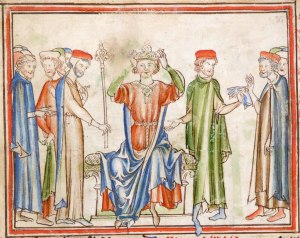

 Many of us know full well what happens to the English overall: the ruling class is wiped away and replaced with Normans; the Harrying of the North; smaller failed rebellions; and the ultimate takeover of a resource-wealthy country whose citizens are relegated to that of second class. Holloway’s approach and abilities lend two advantages to Shadows, in that the four are people whose individual fates are not recorded in any history books, so we really do not know what awaits them, nor do they know of the disasters ahead for them and their countrymen. That anticipation and suspense is paired with characters written in such a way that we not only relate to their perspectives, we also like and care about them as individuals: we cheer them on and, not unlike our wishes for Harold Godwinson in What Fates Impose, on some level hope they will ultimately come out the victors.
Many of us know full well what happens to the English overall: the ruling class is wiped away and replaced with Normans; the Harrying of the North; smaller failed rebellions; and the ultimate takeover of a resource-wealthy country whose citizens are relegated to that of second class. Holloway’s approach and abilities lend two advantages to Shadows, in that the four are people whose individual fates are not recorded in any history books, so we really do not know what awaits them, nor do they know of the disasters ahead for them and their countrymen. That anticipation and suspense is paired with characters written in such a way that we not only relate to their perspectives, we also like and care about them as individuals: we cheer them on and, not unlike our wishes for Harold Godwinson in What Fates Impose, on some level hope they will ultimately come out the victors. These people are, after all, where many of us come from, and they fought – for all of us – in the cause of freedom and justice. Though we will never know the real names and stories of all the individuals affected by this horrible invasion, or even just a lot of them, Holloway gives us insight into what they were like, what they did pre-invasion, what they cared about in their regular lives. He provides faces to some of those unnamed but real-life persons who played roles in the rebellions of notable figures such as Hereward the Wake.
These people are, after all, where many of us come from, and they fought – for all of us – in the cause of freedom and justice. Though we will never know the real names and stories of all the individuals affected by this horrible invasion, or even just a lot of them, Holloway gives us insight into what they were like, what they did pre-invasion, what they cared about in their regular lives. He provides faces to some of those unnamed but real-life persons who played roles in the rebellions of notable figures such as Hereward the Wake. How did author G.K. Holloway decide to write a book about King Harold Godwinson, a decision that moved him into the full time writing life of an author? Well, it seems Harold may have chosen him. The author-to-be was gifted a book about Harold, and that reading changed his life. Holloway continues at
How did author G.K. Holloway decide to write a book about King Harold Godwinson, a decision that moved him into the full time writing life of an author? Well, it seems Harold may have chosen him. The author-to-be was gifted a book about Harold, and that reading changed his life. Holloway continues at 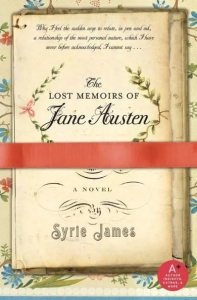



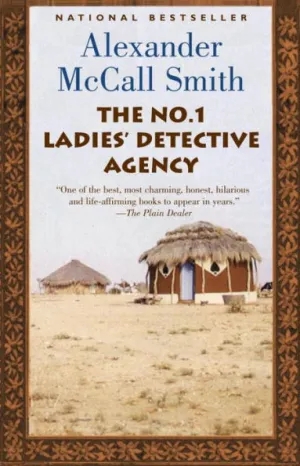
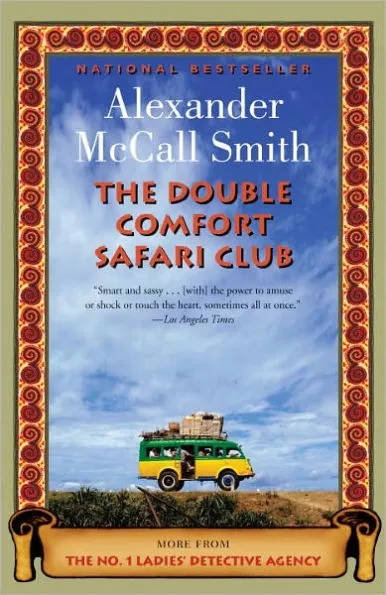




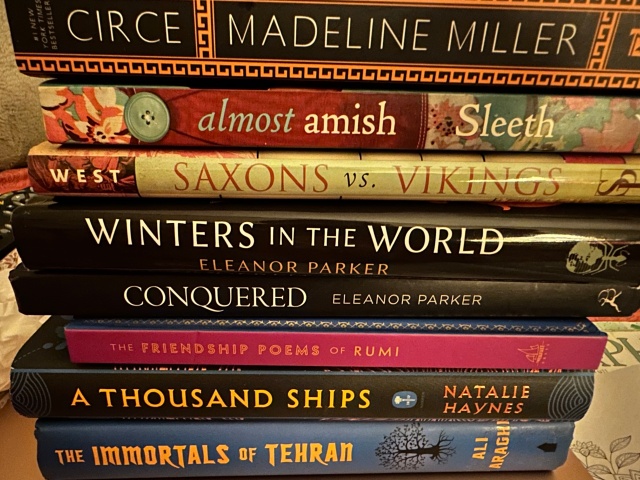



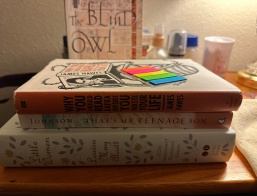
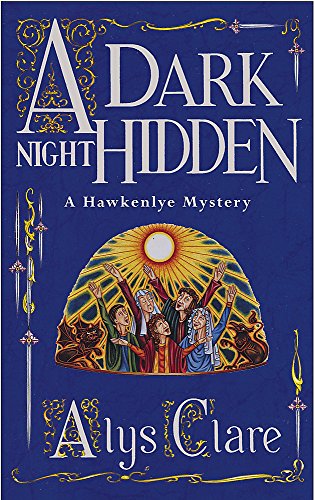 About the book:
About the book:


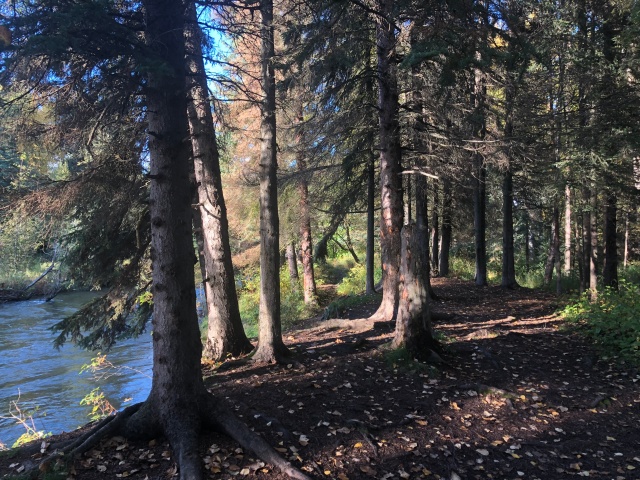


 For example, when I woke up yesterday, I thought immediately of a book title, The Comforts of a Muddy Saturday. I have read the book, but it has been so long that I no longer recall the passage that brings the title to bear on the ongoing storyline.* My own personal enjoyment of the mud might be a bit limited but, still, I could see where comfort might come in. Suppose it is Saturday and you’re off to the Three Barons Fair, or antiquing, or maybe flea marketing. It’s raining and you’ve taken refuge under your scoop umbrella (that’s what I call mine, with its large bubbly cover that descends downward, as opposed to just a flat piece of plastic stretched out over a stick; I don’t know the actual nickname), or perhaps in one of those temporarily erected eateries as the rain comes pouring down around you. Even if you’ve had to step gingerly through a bit of mud to get there, you are now warm and protected, and the prospect of a hot snack fills you with happiness and a sense of well-being. Or you may have continued wandering around under your scoop, checking out a tent that attracted your attention, chatting amiably with its proprietor as the raindrops beat against the canvas outside. Casual conversation turns more friendly and the smell of coffee† soothes your soul. And you savor the moment no matter where you are because it is Saturday and it has been a long week, so you fell asleep kind of early last night. You’re well rested and know that you can just forget about work for a little while – for the whole of the day! You inhale deeply, breathing in the reality that the day is yours; there is no rush and you can sit back and let your body relax for the time being.
For example, when I woke up yesterday, I thought immediately of a book title, The Comforts of a Muddy Saturday. I have read the book, but it has been so long that I no longer recall the passage that brings the title to bear on the ongoing storyline.* My own personal enjoyment of the mud might be a bit limited but, still, I could see where comfort might come in. Suppose it is Saturday and you’re off to the Three Barons Fair, or antiquing, or maybe flea marketing. It’s raining and you’ve taken refuge under your scoop umbrella (that’s what I call mine, with its large bubbly cover that descends downward, as opposed to just a flat piece of plastic stretched out over a stick; I don’t know the actual nickname), or perhaps in one of those temporarily erected eateries as the rain comes pouring down around you. Even if you’ve had to step gingerly through a bit of mud to get there, you are now warm and protected, and the prospect of a hot snack fills you with happiness and a sense of well-being. Or you may have continued wandering around under your scoop, checking out a tent that attracted your attention, chatting amiably with its proprietor as the raindrops beat against the canvas outside. Casual conversation turns more friendly and the smell of coffee† soothes your soul. And you savor the moment no matter where you are because it is Saturday and it has been a long week, so you fell asleep kind of early last night. You’re well rested and know that you can just forget about work for a little while – for the whole of the day! You inhale deeply, breathing in the reality that the day is yours; there is no rush and you can sit back and let your body relax for the time being.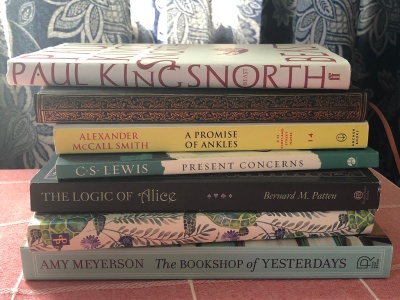
 All you need is this:
All you need is this: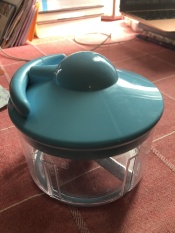
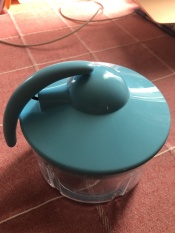

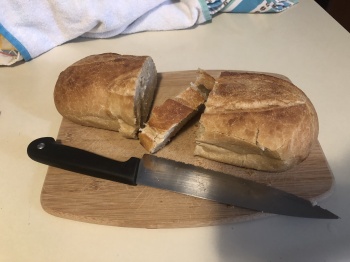
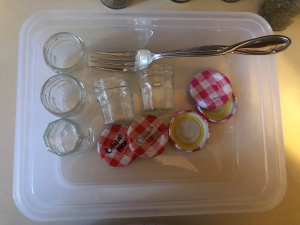 As an added note, in one thrift shop (where I went for some books – more also to come!) I came across these sweet little jars that are currently soaking in a bath of water and vinegar, and when completely rinsed and dried will store spices. And that reminds me that this is the first time I used my dill weed, which came with a spinning spice rack I had and decided I no longer wanted. But I needed just a few more bit-and-bob jars, as I call my collection of various sizes and sometimes colors, so I could empty out the last of the jars that came with the rack, in order to give it away. These were jars of herbs and spices I didn’t use and at one point put out a request for uses of these items. I received at least one fantastic idea from a friend who herself, a talented cook, baker, and food storer, is currently in the midst of her winter food prep – a process that itself is another reason I love the feel of fall. Sure, the sense of relief as we begin to see our food stores accumulate is part of it, but that’s just the brain part. The heart comes into play as we go through cabinets, plan, prepare, store, and see the goodnesses in store for our families. I’ve always said that a delicious meal is an act of love, and love keeps us warm in winter too. In preparing for the season and enjoying the fruits and labor of fall, that is the biggest difference of all.
As an added note, in one thrift shop (where I went for some books – more also to come!) I came across these sweet little jars that are currently soaking in a bath of water and vinegar, and when completely rinsed and dried will store spices. And that reminds me that this is the first time I used my dill weed, which came with a spinning spice rack I had and decided I no longer wanted. But I needed just a few more bit-and-bob jars, as I call my collection of various sizes and sometimes colors, so I could empty out the last of the jars that came with the rack, in order to give it away. These were jars of herbs and spices I didn’t use and at one point put out a request for uses of these items. I received at least one fantastic idea from a friend who herself, a talented cook, baker, and food storer, is currently in the midst of her winter food prep – a process that itself is another reason I love the feel of fall. Sure, the sense of relief as we begin to see our food stores accumulate is part of it, but that’s just the brain part. The heart comes into play as we go through cabinets, plan, prepare, store, and see the goodnesses in store for our families. I’ve always said that a delicious meal is an act of love, and love keeps us warm in winter too. In preparing for the season and enjoying the fruits and labor of fall, that is the biggest difference of all.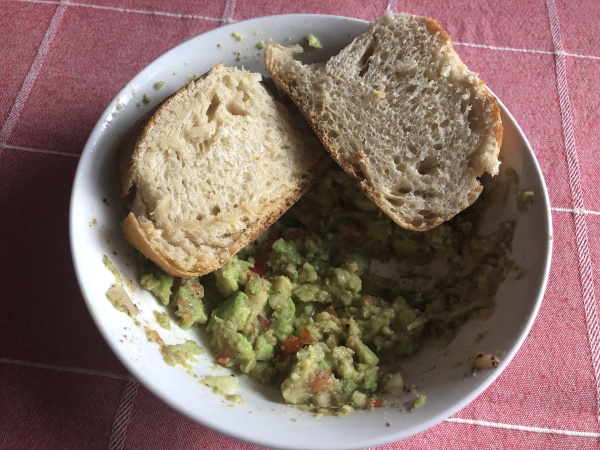
 A Promise of Ankles by Alexander McCall Smith – The 2020 installment for McCall Smith’s 44 Scotland Street series, Ankles’ quirky title is yet one more in the author’s collection of catchy designations. Equally intriguing are the inhabitants of the series title’s Edinburgh address, including Bruce, a self-satisfied surveyor who finds a roommate in Pat, a second-gap-year twenty year old; their neighbor, the widow Domenica; five-year-old Bertie and his insufferable mother and long-suffering father. I can only imagine the title has something to do with Cyril, personable canine companion to Angus Lordie, and a slight obsession with the ankles sometimes associated with the disembodied voices he hears from underneath the table. As a long-time fan of the prolific Alexander McCall Smith, I’m at a happy place in my McCall Smith collection because I’ve fallen a bit behind, which means I have a number of books to read ahead of me. Now I just need to decide: do I start one of his many series over (which I plan to do anyway) or read the new book I’ve just purchased first?
A Promise of Ankles by Alexander McCall Smith – The 2020 installment for McCall Smith’s 44 Scotland Street series, Ankles’ quirky title is yet one more in the author’s collection of catchy designations. Equally intriguing are the inhabitants of the series title’s Edinburgh address, including Bruce, a self-satisfied surveyor who finds a roommate in Pat, a second-gap-year twenty year old; their neighbor, the widow Domenica; five-year-old Bertie and his insufferable mother and long-suffering father. I can only imagine the title has something to do with Cyril, personable canine companion to Angus Lordie, and a slight obsession with the ankles sometimes associated with the disembodied voices he hears from underneath the table. As a long-time fan of the prolific Alexander McCall Smith, I’m at a happy place in my McCall Smith collection because I’ve fallen a bit behind, which means I have a number of books to read ahead of me. Now I just need to decide: do I start one of his many series over (which I plan to do anyway) or read the new book I’ve just purchased first?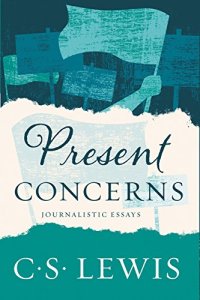 Present Concerns: Journalistic Essays by C.S. Lewis – This one is inspired by Haley Pham’s
Present Concerns: Journalistic Essays by C.S. Lewis – This one is inspired by Haley Pham’s  The Logic of Alice: Clear Thinking in Wonderland by Bernard M. Patten – The first thoughts that came to my mind upon seeing this book cover were, “Perfect, given as we are currently living in the looking glass presently!” and “I wonder if this author is related to Marguerite Patten?” I’ve seen enough of the book’s innards during a flip through to know I must read it, and had to make myself content to wait and see if I find an answer to my second question within the pages. Sometimes books such as these serve up small bits of autobiographical material, so for now the answer is, “We’ll see.” So what is this book about? Well, without having read it yet, my brief and hopefully not short-shifted explanation is thus: Logic provides a walk-through of Alice in Wonderland, using key episodes in Lewis Carroll’s masterpiece as analyses on thinking and expanding our intellectual and other horizons. Three section headers that sealed the deal: “A (Dismissive) Word About Freud and Freudians,” “Neglect of Evidence is Wrong/Conclusions Contrary to Fact Are Always Wrong,” and “Emotions Often Dictate Our Thinking on Critical Issues.” And then, because I really want to say curiouser and curiouser: “Aristotle Was Wrong.” Stay tuned.
The Logic of Alice: Clear Thinking in Wonderland by Bernard M. Patten – The first thoughts that came to my mind upon seeing this book cover were, “Perfect, given as we are currently living in the looking glass presently!” and “I wonder if this author is related to Marguerite Patten?” I’ve seen enough of the book’s innards during a flip through to know I must read it, and had to make myself content to wait and see if I find an answer to my second question within the pages. Sometimes books such as these serve up small bits of autobiographical material, so for now the answer is, “We’ll see.” So what is this book about? Well, without having read it yet, my brief and hopefully not short-shifted explanation is thus: Logic provides a walk-through of Alice in Wonderland, using key episodes in Lewis Carroll’s masterpiece as analyses on thinking and expanding our intellectual and other horizons. Three section headers that sealed the deal: “A (Dismissive) Word About Freud and Freudians,” “Neglect of Evidence is Wrong/Conclusions Contrary to Fact Are Always Wrong,” and “Emotions Often Dictate Our Thinking on Critical Issues.” And then, because I really want to say curiouser and curiouser: “Aristotle Was Wrong.” Stay tuned.
 Beast by Paul Kingsnorth – I now understand a bit better why Haley Pham spends money on books she then says of, “I have no idea what this is about.” At time of purchase I had not an inkling of this novel’s plot; still, it said Paul Kingsnorth, so I knew I was taking that baby home. Kingsnorth is the author of The Wake, a book written entirely in a close approximation of Old English (aka Anglo-Saxon), one I’ve struggled to read but remain determined to complete. Also, I subscribe to the author’s
Beast by Paul Kingsnorth – I now understand a bit better why Haley Pham spends money on books she then says of, “I have no idea what this is about.” At time of purchase I had not an inkling of this novel’s plot; still, it said Paul Kingsnorth, so I knew I was taking that baby home. Kingsnorth is the author of The Wake, a book written entirely in a close approximation of Old English (aka Anglo-Saxon), one I’ve struggled to read but remain determined to complete. Also, I subscribe to the author’s 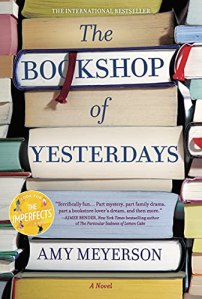 The Bookshop of Yesterdays by Amy Meyerson – I confess I prefer the cover of Diane Setterfield’s The Thirteenth Tale, which Meyerson’s cover reminds me of, but still it caught my attention enough for me to pick it up and read the blurb. And let’s face it, a pile of books is nearly always a beautiful sight. Miranda Brooks may or may not see the nearing-bankruptcy book shop that her uncle wills to her as a beautiful sight, and she also finds a scavenger hunt he left behind, the solution to which brings her closer to unwrapping a family secret that her mother never meant to be revealed. “The Bookshop of Yesterdays is a love letter to reading and bookstores, and a testament to the healing power of community and how our histories shape who we become.” It’s not a huge secret that our past informs our present, but the how, and how we choose to move forward, can be an amazing journey of discovery. I haven’t read many love-letter books, and in fact the only other one that comes to mind immediately is Hanan al-Shaykh’s Beirut Blues – a work I treasure deeply. It remains to be seen whether Meyerson’s novel finds a place in my heart – admittedly, it has some stiff competition – but it came home with me, and that’s always a good sign.
The Bookshop of Yesterdays by Amy Meyerson – I confess I prefer the cover of Diane Setterfield’s The Thirteenth Tale, which Meyerson’s cover reminds me of, but still it caught my attention enough for me to pick it up and read the blurb. And let’s face it, a pile of books is nearly always a beautiful sight. Miranda Brooks may or may not see the nearing-bankruptcy book shop that her uncle wills to her as a beautiful sight, and she also finds a scavenger hunt he left behind, the solution to which brings her closer to unwrapping a family secret that her mother never meant to be revealed. “The Bookshop of Yesterdays is a love letter to reading and bookstores, and a testament to the healing power of community and how our histories shape who we become.” It’s not a huge secret that our past informs our present, but the how, and how we choose to move forward, can be an amazing journey of discovery. I haven’t read many love-letter books, and in fact the only other one that comes to mind immediately is Hanan al-Shaykh’s Beirut Blues – a work I treasure deeply. It remains to be seen whether Meyerson’s novel finds a place in my heart – admittedly, it has some stiff competition – but it came home with me, and that’s always a good sign.
 Lisl Madeleine is the author of “Episodes in the Life of King Richard III,” a short story in
Lisl Madeleine is the author of “Episodes in the Life of King Richard III,” a short story in 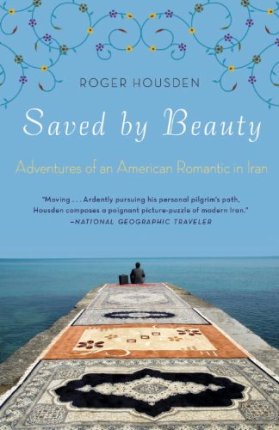 Apart from his encounters, one thing I also appreciated about the narrative is its willingness to praise where praise is due, but be critical, questioning, or skeptical as well. He also details the closing episode of his trip, several days of captivity (cold comfort, but in a hotel, at least, not Evin) and interrogation, and his feelings of raw and utter loneliness in the world in a manner that it brutal in its poetic truthfulness. I say “poetic” not because he translates the experience into a flow of poetry, but rather because his words are neither harsh nor softly new age-y. He does not display open anger (though it was there) or bravado, and his words translate to us perhaps in a dual manner as well: we feel a sense of muted horror and peaceful acceptance. But he leaves us with overwhelmingly positive feelings about the people of Iran, the real focus. The horrible government apparatus forces its way into the story because it is impossible to talk about Iran without bringing up the government they currently live under. Poetry and tyranny.
Apart from his encounters, one thing I also appreciated about the narrative is its willingness to praise where praise is due, but be critical, questioning, or skeptical as well. He also details the closing episode of his trip, several days of captivity (cold comfort, but in a hotel, at least, not Evin) and interrogation, and his feelings of raw and utter loneliness in the world in a manner that it brutal in its poetic truthfulness. I say “poetic” not because he translates the experience into a flow of poetry, but rather because his words are neither harsh nor softly new age-y. He does not display open anger (though it was there) or bravado, and his words translate to us perhaps in a dual manner as well: we feel a sense of muted horror and peaceful acceptance. But he leaves us with overwhelmingly positive feelings about the people of Iran, the real focus. The horrible government apparatus forces its way into the story because it is impossible to talk about Iran without bringing up the government they currently live under. Poetry and tyranny.
